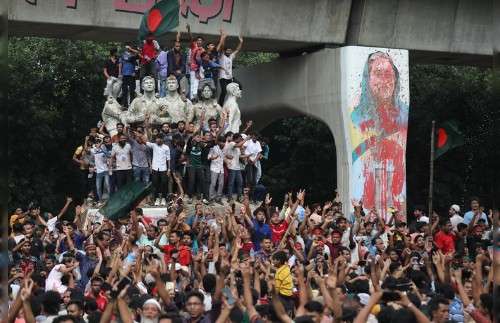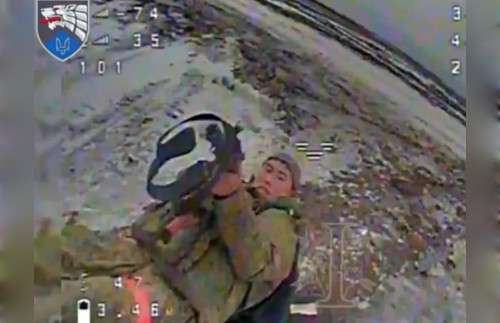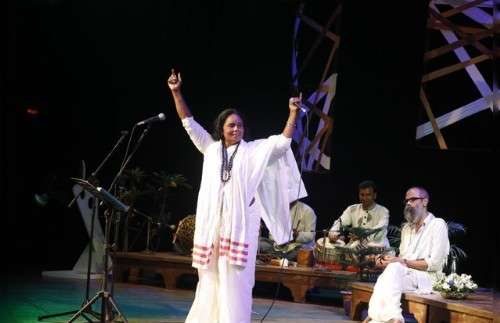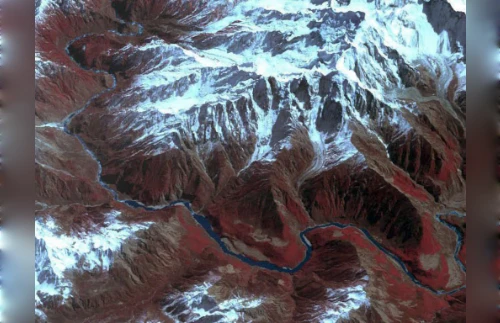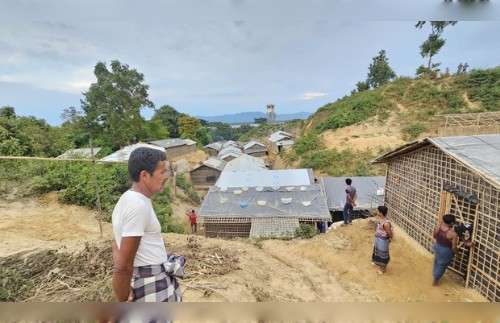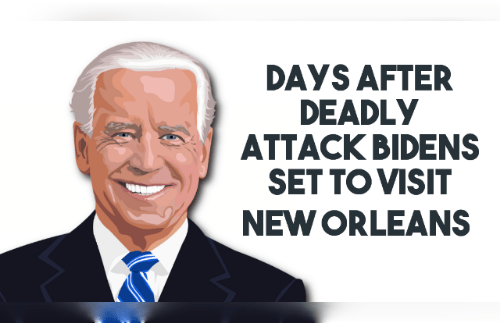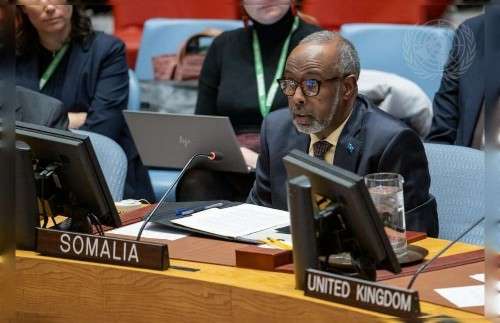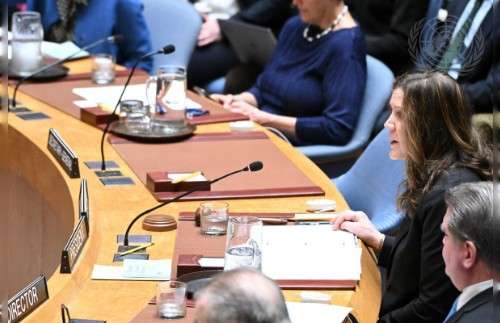Narendra Modi, India’s prime minister, maintains support for ousted Bangladeshi leader Sheikh Hasina, they say.
Kamran Reza Chowdhury/Dhaka
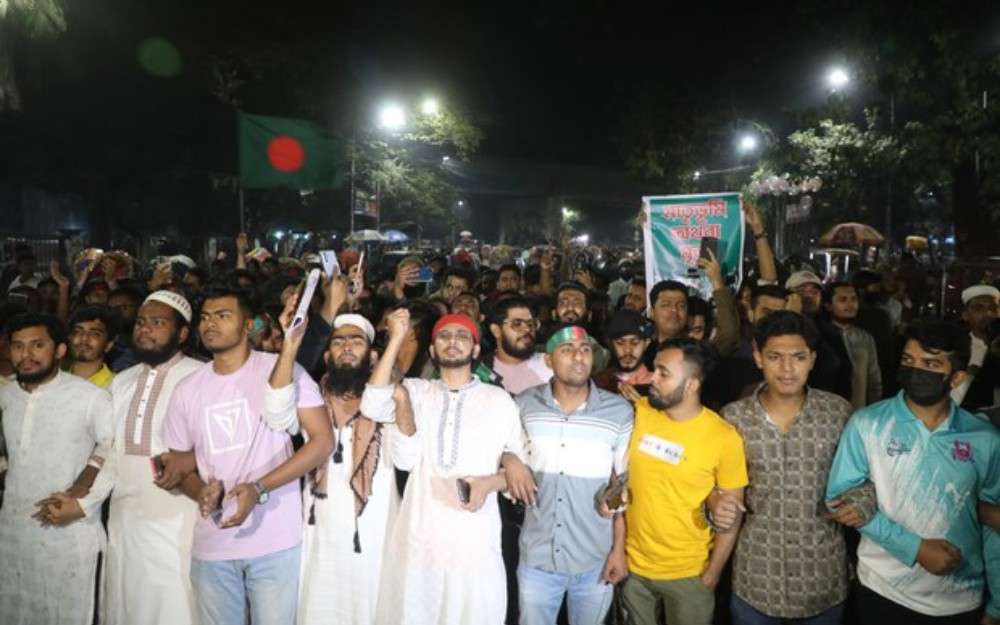
Disintegrating relations between Dhaka and New Delhi could grow even worse as India’s government mobilizes political support for ex-Bangladesh leader Sheikh Hasina, who fled to the neighboring country in August, and her deposed party, analysts warned.
They said Narendra Modi’s government likely wouldn’t deal with the interim administration headed by Nobel Laureate Muhammad Yunus, nor any of Dhaka’s political parties, because of previous anti-Indian politics and worries about instability in India’s northeastern states. Those are separated from the mainland by Bangladesh territory.
“The way the bilateral relationship deteriorated over the last three months indicates that Bangladesh-India relations are unlikely to improve. It seems that in the coming days, the relations will worsen further,” Nizam Uddin Ahmed, a political commentator and retired professor at Bangladesh’s Chattogram University, told BenarNews on Tuesday.
Bilateral ties chilled after Hasina’s resignation and the collapse of her Awami League administration in early August, amid massive anti-government protests by university students. New Delhi has been a longtime ally of Hasina and backed an independence movement led by her father in 1971, when Bangladesh – then known as East Pakistan – broke free of Islamabad rule.
The climate between the two countries has become especially heated in recent days. On Monday, Hindu protesters in northeastern India broke into a Bangladeshi consulate.
On Tuesday, the Bangladesh government summoned the Indian ambassador to lodge a protest over that attack.
Indian media and news reports said the protesters in Tripura state were agitating against last week’s arrest in Bangladesh of a Hindu leader from that country, Chinmoy Krishna Das.
India is likely to keep supporting a movement led by Chinmoy, a Hindu monk. His movement has sought protection for Hindus, who are a religious minority in Bangladesh, following the fall of the Awami League government.
“All political parties of India are united on the issue of Bangladesh after Hasina fled to India. Hasina’s Awami League [AL] government had given everything India asked for to ensure New Delhi’s economic and strategic interests. But now, the interim government and the incoming government would maintain a total opposite role,” Ahmed said.
Chinmoy was detained on Nov. 26 for allegedly desecrating the Bangladesh flag. A bail hearing on Tuesday was postponed until early January.
Two days after the monk was jailed, Hindu protesters assembled in front of the Bangladesh deputy high commission in Kolkata, burned the Bangladeshi flag and effigies of Yunus and chanted anti-Dhaka slogans.
India will support the Hindu movement to put political and diplomatic pressure on Bangladesh, according to Ahmed.
“The present largest party, BNP, and Bangladesh Jamaat-e-Islami have not maintained a minimum friendly ties with India,” he said, using an abbreviation for the Bangladesh Nationalist Party.
The analyst predicted that Indian officials would try to rehabilitate the Awami League.
“India is our biggest neighbor and the second largest trading partner. We are dependent on them economically. They should have maintained good political relations with India for the benefit of Bangladesh,” Ahmed said.
Security concerns
Another analyst, Imtiaz Ahmed, a retired professor of international relations at the University of Dhaka, said New Delhi would not want the parties that have pushed for anti-India politics to come to power in Bangladesh because of security concerns over its eight landlocked northeastern states.
During her 15 years in power, Hasina’s government oversaw efforts to quell anti-Indian rebel groups linked to Bangladesh in those states.
“The anti-Indian politics in Bangladesh and the anti-Bangladesh policy will harm both the countries – socially, politically and economically. It should stop immediately for greater sake,” Imtiaz Ahmed said.
“The ruling BJP may try to keep the issue of Hindu repression in Bangladesh alive,” he said, referring to India’s Bharatiya Janata Party.
“Similarly, the Islamic faith-based parties in Bangladesh will foment anti-Indian sentiment for their political gains while the liberal and secular political parties may suffer,” he said. “Given the situation, Bangladesh-India bilateral relations are unlikely to improve shortly unless we see a thaw.
Ongoing issues
Meanwhile, in the wake of the attack on the Bangladeshi diplomatic outpost in Agartala, Tripura, officials announced that all visa and consular services there had been suspended until further notice.
Also on Monday, West Bengal Chief Minister Mamata Banerjee asked the Indian government to request that U.N. peacekeepers be deployed to protect religious minorities across the state border in Bangladesh, sparking further debate.
Earlier on, students at the Bangladesh University of Engineering and Technology (BUET) had painted Indian flags on walkways in Dhaka to show disrespect for India.
Shafiqul Alam, Yunus’ press secretary, told BenarNews that Bangladesh wanted friendly relations with India, noting the nations share a border of over 4,000 km (2,484 miles).
“We have close historical, cultural and linguistic links with India. We want very friendly relations with India. But the relations must be based on equity, fairness and dignity,” he said.
“We hope that India as a friendly and responsible neighbor will extend support to improve the bilateral relations in line with the expectation of the people.”
Smruti Pattanaik, a research fellow at MP-IDSA, a think-tank in New Delhi, expressed concern about the effect of the Agartala attack on relations between the neighbors.
“But we should not take into account the stuff circulated [via] social media. Yes, there are some problems. But I think these will go away after some days and relations will normalize,” she told BenarNews. “It must normalize.
“Our leaders should sit, find ways to fix the problems in the bilateral relations. We need to go forward,” she said.
Copyright ©2015-2024, BenarNews. Used with the permission of BenarNews.





